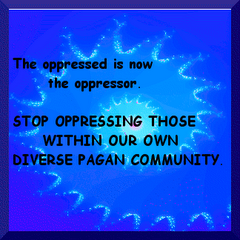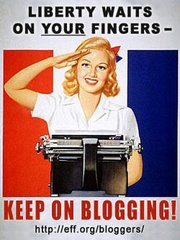When the police raided New York City’s largest gay bar 37 years ago today, on June 27, 1969, they weren’t expecting any resistance. They had raided the Stonewall Inn countless times before, and usually the patrons, fearing that arrest would make their sexuality known, would submissively file out. But tonight was different—and what happened sparked a revolution.
There was an “electricity going through the people,” one witness said. Patrons fought back, and for four days Greenwich Village was alive with protesters clashing with the police and crying “Gay power!” Stonewall became a rallying point for gay-rights activists, and they transformed the raw energy of the riot into a new political movement. It was, in the words of the novelist Edmund White, “our Bastille Day.”
It sent a message: Gays were tired of living in fear. In 1953 President Eisenhower had signed an executive order that prohibited the employment of gays by the federal government, connecting it to “security threats” such as Communism and “sexual perversion.” After that 1,500 federal employers had been fired, and 6,000 had resigned rather than be investigated.
Homosexual sex between consenting adults was illegal in all but one state. In New York City gays could openly socialize only in parks or in Mafia-run clubs like the Stonewall, and gay men in Greenwich Village were often harassed by the police. It was an “attempt to impose police-state conditions onto a homosexual ghetto,” writes David Carter in his book Stonewall: The Riots that Sparked the Gay Revolution. Sylvia Rivera, a transvestite who lived in Greenwich Village, recalls, “We would always dream that one day it would come to an end. We prayed and we looked for it. We wanted to be human beings.”
While dreaming, Rivera and other gay New Yorkers read that their counterparts in San Francisco had been organizing and that homosexuality had been legalized in Canada and West Germany. But in New York it seemed as if the places where it was safe to go were dwindling. A police campaign to shut down Mafia bars produced frequent raids. In the weeks leading up to the riots, three popular nightspots were closed. The police set their sights on the Stonewall as by far the most popular place, attracting a cross section of gay New York, from closeted Wall Street bankers to street youth.
During the raid, the second of that week, the police demanded identification and simply escorted many patrons out. But because of an arcane law that made cross-dressing illegal, transvestites were subjected to humiliating inspections and then arrested. The police were in the process of loading some of them into a van when the riot broke out. Accounts vary of exactly how it began. There was probably a constellation of acts of resistance. Many witnesses reported the violence was touched off when a transvestite wrestled free from a cop before he could cuff her. She then beat him with her shoe, took his keys, and started freeing people who had been loaded into the van or were already cuffed. The crowd of men who had been forced out of the club started shouting “police brutality” and attacking the outnumbered police, who retreated into the Stonewall, barricading the door.
As the police waited for backup, the crowd outside banged on the doors and began chanting “We want freedom,” and “Gay power.” Patrons poured out of other bars nearby, many joining in the melee. When the police’s Tactical Division arrived to disperse the crowd, the violence escalated. “They weren’t the ‘queens’ that people call them, they were men fighting for their lives,” said one participant. “And I’d fight alongside them any day, no matter how old I was.”
Craig Rodwell, editor of Queen’s Quarterly, a gay lifestyle glossy that had hit the stands a few weeks before, was on the street that night. He recalled, “I immediately knew that this was the spark we had been waiting for for years.” The next day people came trickling down to Christopher Street to survey the damage and to talk about what had happened. Rodwell describes Saturday: “It was an angry mood, a lot of chanting, a lot of hand-holding, a lot of assertion of being gay. . . . It was a way of saying ‘We’re tired of hiding, tired of leading two lives, tired of denying our basic identity.’ A general assertion [by] gay people [of] newfound collective pride.” When people defied police orders to disperse, violence erupted again, scattering the crowd—which would double back in the tangle of the Village’s side streets returning to the park near the Stonewall. It took four days for the sporadic violence to cease.
Reflecting on the riots 35 years later, Don Gorton, writing in The Gay & Lesbian Review Worldwide, described Stonewall as “an immediate transformation in the collective gay consciousness.” It inspired gay-rights activists to organize groups such as the Gay Liberation Front and Gay and Lesbian Advocates and Defenders. Such organizations continue to lobby for more stringent hate-crime laws, AIDS awareness, and the rights of same-sex couples to marry and adopt children.
In the years since Stonewall, gay-rights activists have achieved considerable gains, including the 2003 Supreme Court decision declaring antisodomy laws unconstitutional, but they also have contended with ongoing antigay backlash. In the 2004 election, 11 states passed amendments banning gay marriage. (Massachusetts is the only state in which same-sex couples can marry.) There is also a contentious battle over custody rights for gay parents. Laws are in effect or being considered in many states to prevent gays from adopting. In 2002 an Alabama court denied a lesbian mother custody of her own child, and Chief Justice Roy Moore wrote in his concurrence that homosexuality is “abhorrent, immoral, detestable, a crime against nature.” He suggested that the state execute gay people.
But Stonewall made one thing clear. Gays and gay-rights advocates would no longer take these attacks without fighting back. In the words of Joan Nestle, founder of the Lesbian Herstory Archives, “That night in some very deep way we finally found our place in history, not as a dirty joke, not as a doctor’s case study, but as a people.”
—Elizabeth D. Hoover is a former editor at American Heritage magazine
Wednesday, June 28, 2006
Tuesday, June 13, 2006
NPR AND PBS UNDER THE AXE AGAIN.......6/13/06
letter was copied and pasted from site listed above [and below] where an electronic petition resides.
Subject: Save NPR and PBS (again)
Hi,
Everyone expected House Republicans to give up efforts to kill NPR and PBS after a massive public outcry stopped them last year. But they've just voted to eliminate funding for NPR and PBS—unbelievably, starting with programs like "Sesame Street."Public broadcasting would lose nearly a quarter of its federal funding this year. Even worse, all funding would be eliminated in two years--threatening one of the last remaining sources of watchdog journalism.Sign the petition telling Congress to save NPR and PBS again this year:http://civic.moveon.org/publicbroadcasting/
Last year, millions of us took action to save NPR and PBS, and Congress listened. We can do it again if enough of us sign the petition in time.This would be the most severe cut in the history of public broadcasting. The Boston Globe reports the cuts "could force the elimination of some popular PBS and NPR programs." NPR's president expects rural public radio stations may be forced to shut down.The House and Senate are deciding if public broadcasting will survive, and they need to hear from viewers like you. Sign the petition at:http://civic.moveon.org/publicbroadcasting/
Thanks,
sapphoq on behalf of MoveOn
Subject: Save NPR and PBS (again)
Hi,
Everyone expected House Republicans to give up efforts to kill NPR and PBS after a massive public outcry stopped them last year. But they've just voted to eliminate funding for NPR and PBS—unbelievably, starting with programs like "Sesame Street."Public broadcasting would lose nearly a quarter of its federal funding this year. Even worse, all funding would be eliminated in two years--threatening one of the last remaining sources of watchdog journalism.Sign the petition telling Congress to save NPR and PBS again this year:http://civic.moveon.org/publicbroadcasting/
Last year, millions of us took action to save NPR and PBS, and Congress listened. We can do it again if enough of us sign the petition in time.This would be the most severe cut in the history of public broadcasting. The Boston Globe reports the cuts "could force the elimination of some popular PBS and NPR programs." NPR's president expects rural public radio stations may be forced to shut down.The House and Senate are deciding if public broadcasting will survive, and they need to hear from viewers like you. Sign the petition at:http://civic.moveon.org/publicbroadcasting/
Thanks,
sapphoq on behalf of MoveOn
Thursday, June 01, 2006
TO FRIENDSHIP
Spike is an important person in my life and has been from the ist day we meet at work in New York in 1992. Spike is the only friend that I've ever really let to get to know me in my life.
I remember when you tell the stories of taking the dogs on a camping trip and backpacking all alone I could never do that I would be too afraid to do something like that.
Spike you showed me how to be a friend and to love a friend. You gave me strength, hope and so much more I don't what to say. You are a wonderful person who sees the best in people everyday and no matter how rough your day may be. You take such beautiful photos that express and reflect so much about the person you are Today.You have touched my life like no other friend could.
I'm sending you in another note a picture of my family and I that you will post it on your web site. Hope you had a great weekend.
Love,
Ellie
I remember when you tell the stories of taking the dogs on a camping trip and backpacking all alone I could never do that I would be too afraid to do something like that.
Spike you showed me how to be a friend and to love a friend. You gave me strength, hope and so much more I don't what to say. You are a wonderful person who sees the best in people everyday and no matter how rough your day may be. You take such beautiful photos that express and reflect so much about the person you are Today.You have touched my life like no other friend could.
I'm sending you in another note a picture of my family and I that you will post it on your web site. Hope you had a great weekend.
Love,
Ellie
Subscribe to:
Comments (Atom)


